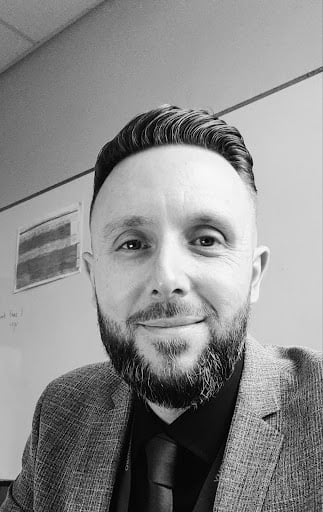Intellectual Property (Edexcel GCSE Computer Science)
Revision Note

Author
Robert HamptonExpertise
Computer Science Content Creator
What is intellectual property (IP)?
Intellectual property (IP) refers to creation of the human mind
This includes:
Software - code
Inventions
Literacy & artistic work - books, poems, songs, movies, paintings etc.
Designs
Symbols, names & images used in commerce - logos, brand names, slogans etc.
To gain financial reward/recognition for a persons IP and to prevent others from benefiting without permission there are four methods of IP protection:
Copyright
Patents
Trademarks
Licensing
Copyright & Patents
What is the Copyright Designs & Patents Act (1988)?
This protects the intellectual property of an individual or a company
It makes it illegal to copy, modify or distribute software or other intellectual property without the relevant permission
If original work is original, copyright will be automatically applied and will not expire until 25 - 70 years from the death of the creator depending on the type of work
If an individual believes that their work has been copied it is their responsibility to take action under the Copyright Designs and Patents Act
Many sites online offer free downloads of copyrighted software/videos which prevents the intellectual copyright holder from earning their income on the work they have created
E.g. If someone downloaded videos from Netflix and shared them with others, they would be breaching the act
The act covers videos and audio where peer-to-peer streaming prevents a copyright owner from receiving an income
What is prohibited under the Copyright, Designs & Patents Act?
Primary breaches:
Copying an original work
Issuing the copy of the original work to the public
Renting/lending the copy of the original work to the public
Performing, showing or playing the original work in public
Making an adaptation of the original work
Secondary breaches:
Importing a copy of original work
Possessing or dealing with a copy of the original work
Providing means to make copies of the original work
Permitting the use of premises for making copies of the original work
Provision of props/equipment for a performance of a copy of the original work
Trademarks & Licensing
What is a trademark?
A trademark is a sign that distinguishes goods or services of one business to those from another
Examples of the most valuable (highest revenue) trademarks include:
Amazon
Apple
Microsoft
Google
Visa
McDonald's
What is licensing?
A software licence is a legal agreement that lays out rules for how software can and can't be used
There are two main types of software licence, each with very different rules on usage, distribution and support, they are:
open source
proprietary
Features of open source & proprietary software
Software Licence | Features |
|---|---|
Open source |
|
Proprietary |
|
Advantages & disadvantages of open source & proprietary software
Software Licence | Advantages | Disadvantages |
|---|---|---|
Open source |
|
|
Proprietary |
|
|

You've read 0 of your 0 free revision notes
Get unlimited access
to absolutely everything:
- Downloadable PDFs
- Unlimited Revision Notes
- Topic Questions
- Past Papers
- Model Answers
- Videos (Maths and Science)
Did this page help you?